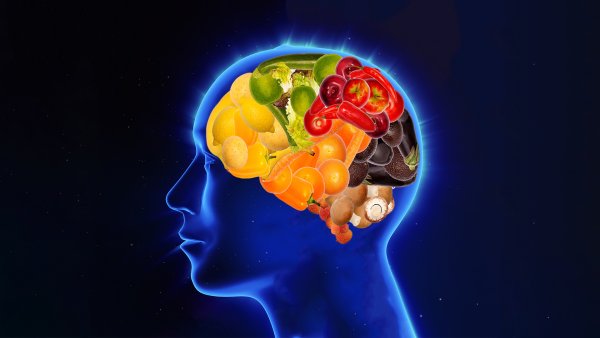Which Eating Habits Can Improve Mental Health?
Tags: opinion

The reality is that a lot of factors affecting our mental health are things that we cannot control. But one of the things we can control is our eating habits. A number of studies have confirmed that eating habits can change our moods – both positively and negatively. Today we will be looking at some food items that are proven to improve mental health.
Eat Positive
Research has shown that the amount of vegetables and fruits we eat is associated with our happiness. For instance, one study discovered that on days people ate more vegetables and fruits, their mental health was better in comparison to days when they did not eat much of them. Additionally, eating healthy for a day usually made them happier the following day as well even if they did not get to eat as healthy on that day.
At the same time, other researchers have shown that these colorful eating habits are associated with more positive moods, like having a more fulfilling sense of meaning and purpose, as well as more curiosity and creativity. The relationship is also apparently linear – this means the more one eats them, the better their mental health is.
Read: Study Suggests Eating Mushrooms Can Prevent Cognitive Decline In Seniors
Vegetables and fruits are storehouses of antioxidants, vitamins, and minerals. The chemical messengers that are associated with mood regulation are protected and enriched by these substances. As a result, they can communicate more effectively.
So, you might want to increase your produce intake during meals. Perhaps you can even have a vegetable or a fruit as one of your everyday snacks.
Omega-3, Water, And Magnesium
Omega-3 fats are found in seafood and some plant foods as well like flaxseeds, chia seeds, and walnuts. Omega-3 fats are known for reducing brain inflammation and are known to improve mental health if they are regularly eaten. For instance, a study covering 26,000 adults and their eating habits found that those who eat walnuts daily had a higher chance of having increased optimism, greater energy levels, as well as more interest in activities. Another one discovered that walnuts caused young men’s moods to significantly improve even if they did not have depression symptoms. Although the study is inconclusive, researchers suggest that the improvement might be because of walnuts’ ALA content.
Secondly, drinking water can also help in improving mental health. A study showed that increasing the water intake of people who usually drank less led to significant improvements in their mood. This included less sleepiness and more energy. A different research found that not drinking enough water can cause concentration problems as well as increased anxiety and tension. 20% of our daily water requirement usually comes from other food items like watery vegetables, soups, etc. Drinking one glass of water after every meal is a good habit.
Read: Study Suggests Living Near The Water Is Good For Your Mental Health
Magnesium is another mineral that is tied to stress and better mental health in general. Low levels have been associated with feeling tired, sleep disorders, irritability, aggression, confusion, nervousness, and anxiousness. Magnesium is associated with regulating your physical response to stress. Hence, these symptoms come naturally from a magnesium imbalance. However, a low intake of magnesium is extremely prevalent. Studies indicate that as many as 70% of the population do not meet the target.
If your diet consists of heavily processed foods then it is likely why your magnesium intake is low. The manufacturing of processed foods usually removes most of the magnesium. Magnesium insufficiency is also difficult to detect. Seeds and nuts, pulses, whole grains, and leafy greens should be introduced in your eating habits to boost your natural magnesium intake.
In Conclusion
Having healthy eating habits can go a long way in bettering your mental health. Similarly, eating habits like excessive caffeine, red meat, processed foods, alcohol, and sugar have all been shown to worsen mental health. Let us know how many of them are included in your eating habits, and if they help!
SUPPORT US ON PATREON AND GET ACCESS TO OTHER EXCLUSIVE CONTENT, CLICK HERE TO LEARN MORE
FOLLOW MIKE ON INSTAGRAM FOR MORE: @MIKESYGULA
Image credits: 123RF
Leave Comment: